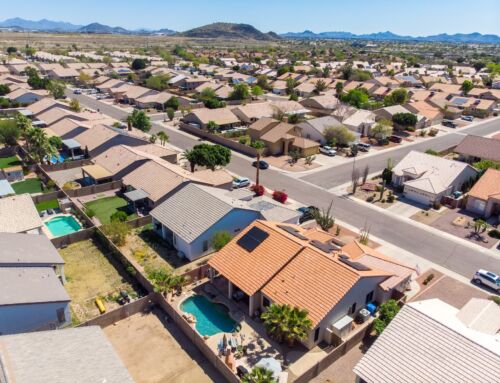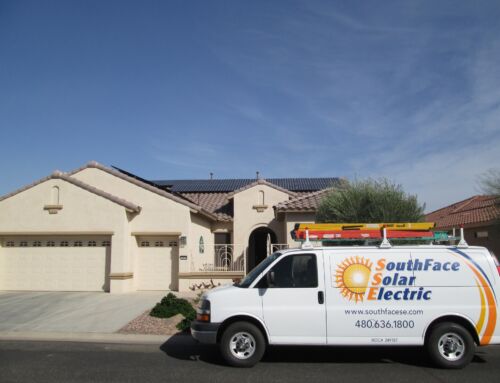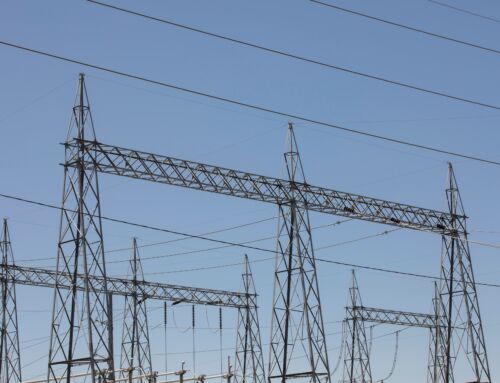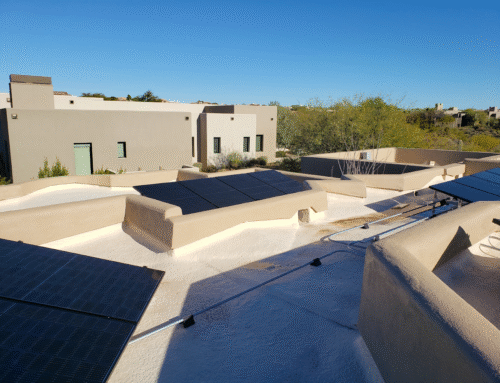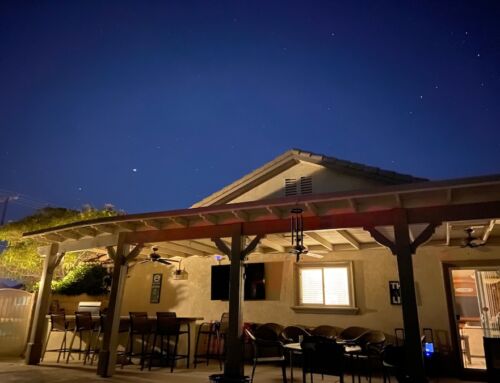Complete Guide to Home Backup Power in 2025
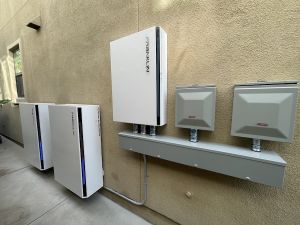
Installing home backup power can give you serious peace of mind, especially in Arizona, where losing your AC during a summer heat wave could quickly become a safety risk.
But there’s a lot to consider before you install home backup power to make sure you get your money’s worth.
SouthFace Solar & Electric installs generators and battery backup systems in Arizona. We’ve been at it for over 15 years, and we know what works in the desert—and what doesn’t.
Backup Power Options for Homeowners
There are two primary options available for home backup power: solar batteries and standby generators.
1. Solar Battery Storage
Solar batteries work like any other type of battery. They store energy so that it can be used at a later time (like during a power outage). Batteries usually charge from residential solar panels, but they can also be installed without solar panels and charge from the grid instead. There are many different types of solar batteries, and they all work a little differently.
Pros:
- Easily rechargeable from the grid or solar
- Qualifies for a 30% federal solar tax credit
- Saves you money by avoiding time-of-use rates
- No fuel storage or refills
- Quiet operation with no exhaust fumes
- Easy maintenance
Cons:
- High upfront costs
- Relies on sunlight (when paired with solar)
- Typically sized to power essentials, not your whole home
- Drains quickly when powering intensive appliances like an AC
2. Standby Generators
Standby generators use natural gas, propane, or diesel to generate electricity for your home. They kick in automatically during a power outage and can be sized for partial or whole-home backup.
Pros:
- Typically more cost-effective for whole-home backup
- Can store large amounts of energy and run for long periods
- Doesn’t rely on sunlight
- Can be connected to an existing gas line
Cons:
- High maintenance
- Needs to be refueled regularly, which increases costs
- Dependent on fuel availability
- Noisy
- Burns fossil fuels and emits harmful exhaust fumes
Want a more in-depth breakdown? Check out our full comparison of solar batteries vs whole home generators.
How to Choose the Right Power Backup for Your Home
It’s helpful to think about what your priorities are when installing home backup power so you can use them to guide your decision.
| Priority | Best Fit |
|---|---|
| Whole-Home Backup | Generator |
| Longest Run Time | Generator |
| Electric Bill Savings | Solar Battery |
|
Easy Maintenance |
Solar Battery |
|
Pair with Solar Panels |
Solar Battery and/or generator |
This chart gives you a good idea of the basics, but the best fit can vary, especially when you start combining priorities. For example, if you want whole-home backup and your environmental impact is a huge priority, a battery is the better choice—but you’ll need multiple, and it will be more expensive.
We recommend a free consultation so you can talk to an expert about your specific priorities and get personalized recommendations based on your needs and budget.
Best Solar Batteries for Arizona Homes in 2025
There are more solar batteries on the market now than ever before. These are our top solar battery recommendations for Arizona homes based on performance, flexibility, and value:
- FranklinWH – High-capacity (15 kWh/unit, expandable), AC-coupled, and easy to monitor via app. Great for whole-home backup and pairing with existing solar.
- Enphase IQ Batteries – All-in-one system with inverter included. Easy to monitor your battery and solar panels with one app. Plus, Enphase manufactures many of its products in the United States.
- Fortress Power – Compact, efficient (98% round-trip), and built with safe lithium iron phosphate chemistry.
- Tesla PowerWall 3 – Most cost-effective battery for partial backup and savings.
Best Whole-Home Generators for Arizona Homes in 2025
Not all generators are created equal. These are our top whole-home generator picks based on performance, dependability, and value.
- Kohler Generators – Reliable and long-lasting, with a huge range of sizes available. Available in 14 colors and camouflage styles that blend into landscaping.
- Generac Generators – Top-selling residential generator brand in the United States. Generac generators are more affordable than other premium options and provide reliable whole-home backup when sized correctly.
Incentives & Tax Credits for Backup Power in 2025
Tax credits and incentives make it more affordable to install battery backup for home power outages.
Solar Battery Incentives
Solar batteries qualify for a 30% federal tax credit. You can claim the tax credit whether you’re installing solar panels with battery storage, adding a battery to an existing solar panel system, or installing a standalone battery that charges from the electric grid.
Some electric utilities offer additional incentives. Mohave Electric Cooperative offers a $500 rebate to customers who install a solar battery, for example. As a local solar installer, we’re tuned into the local rebate landscape and will make sure you don’t leave any money on the table.
Generator Incentives
Standby generators do not qualify for incentives, which is something to consider when choosing a backup power system for your home.
Benefits of Backup Power for Your Home in Arizona
No matter which type of home backup power system you choose, the benefits are clear. A battery or generator can:
- Keep your AC running during a power outage
- Prevent food and medicine from going bad
- Help you stay calm and comfortable during a power outage
- Ensure backup power for medical devices such as a CPAP machine or O2 generator
- Keep your well pump running
SouthFace Solar & Electric is a full-service solar company and electrician in Arizona. We’ve been in business since 2008 and have installed hundreds of backup power systems for homeowners throughout the state. Give us a call to learn more about your backup power options. We can help you find the right fit for your home!

